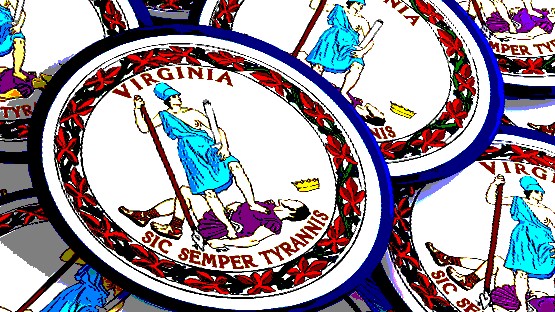
A federal judge struck down the bans in February in Bostic v. Rainey, a case brought by two couples in Norfolk who are represented by attorneys Ted Olson and David Boies. The American Civil Liberties Union, the ACLU of Virginia, Lambda Legal, and the law firm Jenner and Block represent a certified class of all same-sex couples in the state and joined the Bostic appeal to present arguments on the class’s behalf. That class action was initially filed last August on behalf of Joanne Harris and Jessica Duff of Staunton and Christy Berghoff and Victoria Kidd of Winchester.
“We’re hopeful that we’ll finally be able to pledge our love to each other like any other couple that’s ready to make that commitment,” said Harris. “Jessi and I are completely devoted to each other, and it’s important to us and to our son that our family is recognized in Virginia with all the dignity and protections that only come with marriage.”
Harris and Duff have been together for 11 years and are raising a five-year-old son, Jabari. They had a commitment ceremony in 2011. Berghoff and Kidd were married in Washington, DC two years ago, but are considered single in their home state of Virginia. They have a one-year-old daughter, Lydia.
James Esseks, the director of the ACLU Lesbian Gay Bisexual and Transgender Project, will argue for the class during the hearing. Olson will argue for the Bostic plaintiffs and Stuart Raphael, the solicitor general, will argue for the commonwealth.
“All across the country, courts are recognizing what a majority of Virginians already know — that it’s unfair to exclude same sex couples from marriage,” said Esseks. “Today brings us one step closer to the day when all families are able to marry in their home states. Every family should know that they will be able to care for each other no matter what.”
Today’s arguments were heard in the U.S. Court of Appeals for the Fourth Circuit. The ruling could affect not only all couples in Virginia, but couples in other states under the court’s jurisdiction, including West Virginia, North Carolina, and south carolina.
“We’re in court today because thousands of Virginia’s same-sex couples and their families experience real, concrete harms when Virginia marks them as unequal,” said Greg Nevins, lambda legal Counsel. “Barring same-sex couples from marriage is clearly unconstitutional. We do not want a country divided by unfairness and discrimination. Same-sex couples are in loving, committed relationships in every region of our nation and should be treated the same way, whether they live in Maine or Virginia.”
This is the second federal court of appeals this year to hear arguments about the constitutionality of a state marriage ban. The U.S. Court of Appeals for the Tenth Circuit heard arguments in challenges to the Utah and Oklahoma bans last month. Marriage cases are also pending before federal appeals courts for the Fifth (a case from Texas), Sixth (cases from Ohio, Michigan, Kentucky, and Tennessee), and Ninth (a case from Nevada) Circuits.
“All Virginians should be able to marry the person they love,” said Claire Guthrie Gastañaga, executive director of the ACLU of Virginia. “The families who are coming before the court today represent all of our loved ones, neighbors, and friends who just want the same recognition any family would want.”
More information on this case can be found at www.aclu.org/lgbt-rights/bostic-v-schaefer-harris-class-action.










